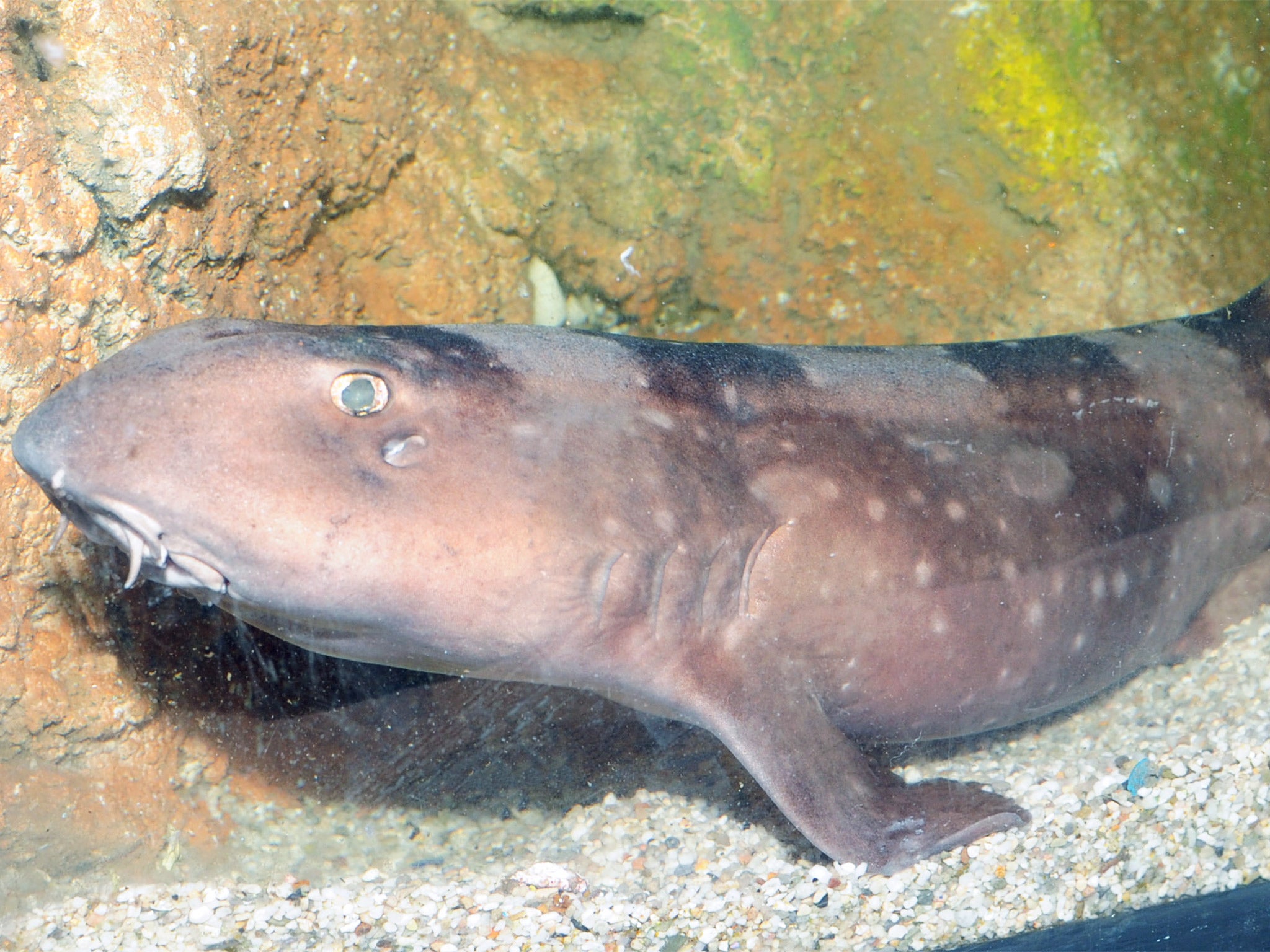Female shark due for ‘virgin birth’ at Great Yarmouth Sea Life Centre
She has been the only member of her species at the centre and has had no contact with male sharks

A female shark could be set to give birth to two babies despite not having had contact with males for more than two years.
Experts at the Great Yarmouth Sea Life Centre have said that the white spotted bamboo shark has produced two fertile eggs which could hatch at any time after 15 weeks.
The so-called virgin birth is known as parthenogenesis - a process which does not involve input from a male. It was recorded for the first time in sharks in 2001, and has since been seen in the bamboo, bonnethead, blacktip and zebra species.
Darren Gook, a marine biologist and shark expert, said: “Females somehow manage to add an extra set of chromosomes to their eggs to produce off-spring which are either clones or half-clones of themselves."
"The success rate [of the eggs hatching] is drastically reduced naturally through this method," Mr Gook told The Independent, adding that the team of conservationists at the Sea Life centre were keeping a close eye on the eggs to give them the best chance of surviving. They have been placed in a nursery tank where they will be available for visitors to view.
If the eggs do hatch successfully, the sharks are likely to be the first born from a virgin birth in the UK.
Mr Gook said there were many "unanswered questions" about the biology of sharks and hoped that the centre would be able to add information to the field.
Recently, a research facility in Munich announced the second generation virgin birth of the same bamboo shark species. Mr Gook said this disproved the assumption that offspring born as a result of parthenogenesis were infertile.
Mr Gook added that asexual reproduction was a way to ensure the survival of species if there was a drastic decline in numbers making it harder for males and females to locate each other.
The shark arrived at the centre in 2013 after being evacuated from the flooded sister centre in Hunstanton.
Additional reporting by PA
Join our commenting forum
Join thought-provoking conversations, follow other Independent readers and see their replies
Comments